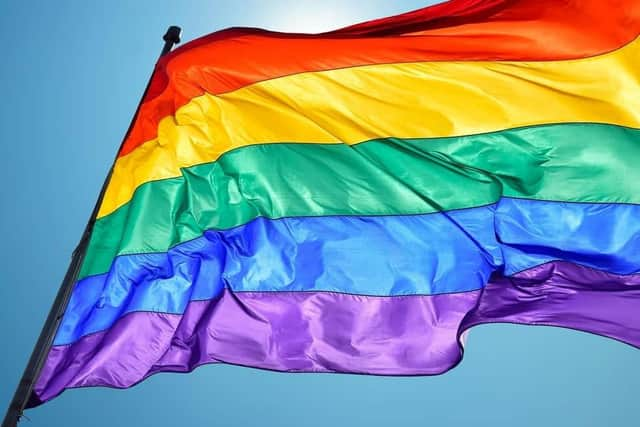Analysis: ‘Conversion therapy’ ban was always going to be contentious
The Scottish Government’s plan to ban “conversion therapy” was always going to be contentious. For one thing, there is no settled, universal definition of what this entails.
Broadly, conversion therapy refers to attempts to change or suppress the gender identity or sexual orientation of another person. A consultation published on Tuesday said having the “purpose or intention” to do so will be at the core of the Scottish definition.
Advertisement
Hide AdAdvertisement
Hide AdProposed new criminal offences will address "the most serious and harmful forms of conversion practices”, with jail sentences of up to seven years for the worst offenders. "These are aimed at two specific forms of conduct: the provision of a service, and a coercive course of behaviour, which will be criminalised when certain thresholds are met,” the document added.


Ministers know this is a sensitive area, and the consultation paper is at pains to set out what will not be covered by the new law. For example, parents “expressing concerns and advising their child against medical interventions” will not be covered, nor will those who do not “actively support” their child’s decision to change gender. Unless, that is, their behaviour is “coercive”.
The problem here is defining what counts as coercive. The consultation says this should include “controlling” behaviour – that is, actions that “regulate, restrict, or monitor a person’s behaviour or otherwise deprive them of their own freedom of action”. Given the parent-child relationship, this could be a bit of a minefield.
It then gives the example of “preventing someone from dressing in a way that reflects their sexual orientation or gender identity”. As recent political developments have shown, gender identity is a contested area.
"Politicians interfere with family life and parental rights at their peril,” Fergus Ewing, the former SNP cabinet minister, has warned. There are thought to be around a dozen SNP MSPs who could rebel against any legislation.
However, the issue forms a key part of the party’s power-sharing agreement with the Greens, and the latter will want to see some progress.
Religious leaders have expressed their opposition. “The worrying lack of clarity about what is meant by the term conversion practices could create a chilling effect and may criminalise advice or opinion given in good faith,” said a spokesperson for the Catholic Church.
Interestingly, however, the Church of Scotland’s General Assembly has backed a ban on conversion therapy, so there’s no widespread consensus here either.
Advertisement
Hide AdAdvertisement
Hide AdInternal critics fear the issue will prove as divisive as the Scottish Government’s gender reforms, which were effectively abandoned last month after it lost a court battle with UK ministers. Rightly or wrongly, many politicians will be wary of diving into another row involving gender identity.
Emma Roddick, the SNP minister for equalities, says there is a “significant gap” in the law in Scotland. “Our approach, set out in this consultation, aims to bridge this gap while ensuring that fundamental rights already enjoyed by people in Scotland, such as freedom of religion and the right to family and private life, are upheld,” she said.
It remains to be seen whether this approach will prove successful.
Comments
Want to join the conversation? Please or to comment on this article.
